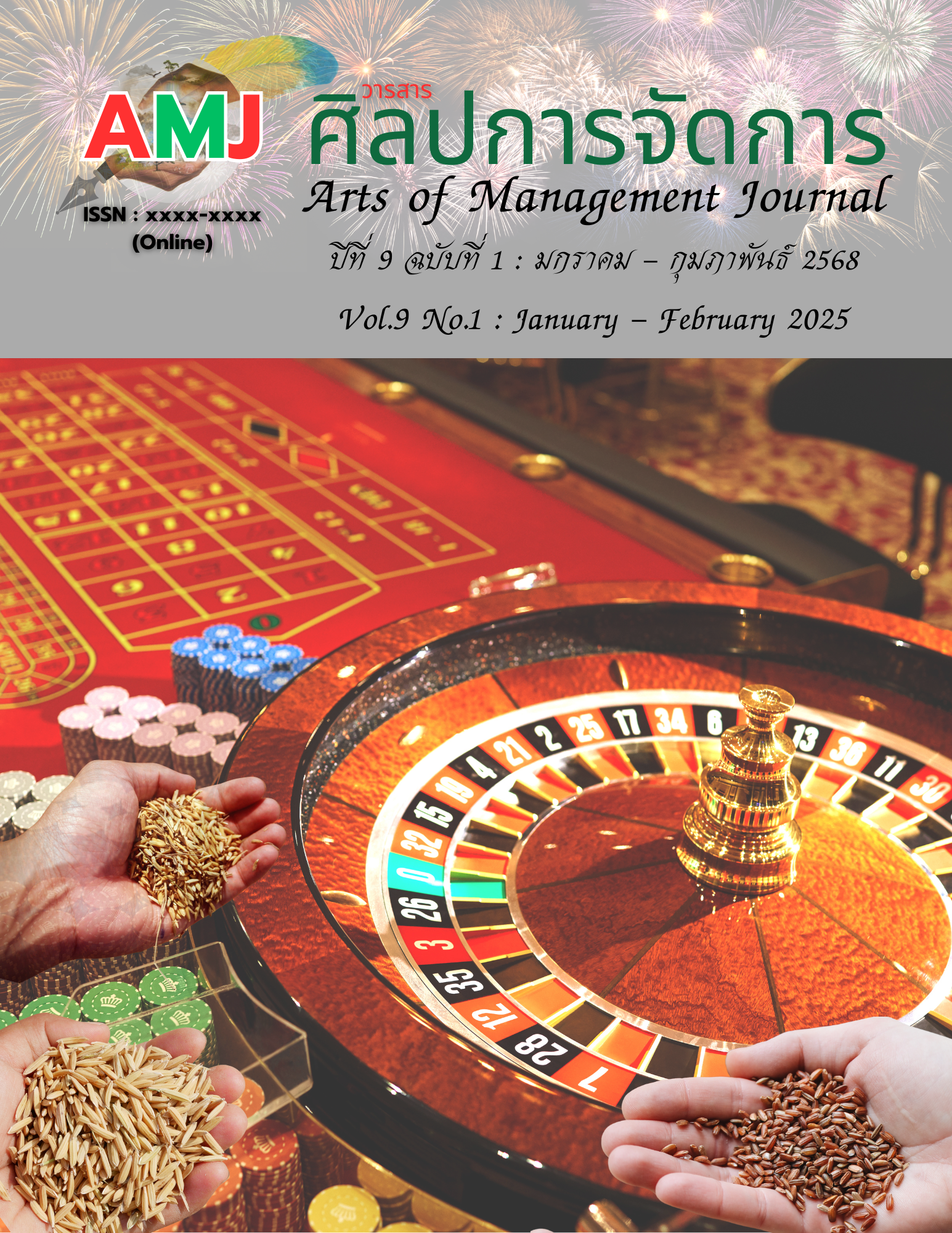Political Communication and Its Roles in Maintaining and Strengthening Democratic System
Main Article Content
Abstract
This article aims to examine political communication's role in maintaining and strengthening democracy by reviewing key theoretical concepts. The findings suggest that political communication is crucial in promoting democratic governance through disseminating comprehensive political information, providing space for free and equal exchange of opinions among various parties, representing diverse social groups, and monitoring the transparency and accountability of the state and those in power. The aforementioned roles operate synergistically and complementary, collectively contributing to the robustness and efficacy of democratic institutions and processes. Furthermore, the study proposes that for political communication to perform these functions effectively, several key factors are required, such as freedom of senders, particularly the media, inclusiveness, and accessibility for all groups of citizens, public responsibility, and adherence to media professional ethics. Therefore, enhancing the role of political communication necessitates collaboration from different sectors of society in creating conditions, mechanisms, and political culture that foster quality political communication, enabling democracy to thrive and grow sustainably.
Article Details

This work is licensed under a Creative Commons Attribution-NonCommercial-NoDerivatives 4.0 International License.
Views and opinions appearing in articles in the Journal of Arts of Management It is the responsibility of the author of the article. and does not constitute the view and responsibility of the editorial team I agree that the article is copyright of the Arts and Management Journal.
References
Anderson, B. (2006). Imagined communities: Reflections on the origin and spread of nationalism (Rev. ed.). Verso.
BBC. (2020). Register for Remedies: Analyze various problems to remedy those affected by COVID-19. https://www.bbc.com/thai/thailand-52350798
Bennett, W. L., & Segerberg, A. (2012). The logic of connective action: Digital media and the personalization of contentious politics. Information, Communication & Society, 15(5), 739-768. https://doi.org/10.1080/1369118X.2012.670661
Bennett, W. L., & Pfetsch, B. (2018). Rethinking political communication in a time of disrupted public spheres. Journal of Communication, 68(2), 243-253.
Bruns, A. (2008). Blogs, Wikipedia, Second Life, and beyond: from production to produsage (Vol. 45). Peter Lang.
Castells, M. (2009). Communication power. Oxford University Press.
Chanrojanakit, B., & Supasarn, N. (2024). Hashtags in Thai Politics. King Prajadhipok’s Institute.
Curran, J. (2002). Media and power. Routledge.
Curran, J. (2005). What democracy requires of the media. In G. Overholser & K. H. Jamieson (Eds.), The institutions of American democracy: The press. (pp. 120-140). Oxford University Press.
Dahl, R. A. (1998). On democracy. Yale University Press.
Delli Carpini, M. X., & Keeter, S. (1996). What Americans know about politics and why it matters. Yale University Press.
Democracyforindia. (2024). Platform for Indian Democracy. https://www.democracyforindia.org/
Election Commission. (2023). Election of members of the house of representatives.
https://www.ect.go.th/ect_th/th/db_119_ect_th_download_14
Habermas, J. (1989). The structural transformation of the public sphere: An inquiry into a category of bourgeois society. Polity Press.
Held, D. (2006). Models of democracy (3rd ed.). Stanford University Press.
Herman, E. S., & Chomsky, N. (2010). Manufacturing consent: The political economy of the mass media (Anniversary ed.). The Bodley Head.
Highfield, T. (2016). Social media and everyday politics. Polity Press.
Howard, P. N., & Hussain, M. M. (2013). Democracy's fourth wave? digital media and the Arab spring. Oxford University Press.
Jamieson, K. H. (1992). Dirty politics: deception, distraction, and democracy. Oxford University Press.
Lubken, D. (2008). Remembering the straw man: The travels and adventures of hypodermic. In D. W. Park & J. Pooley (Eds.), The history of media and communication research: Contested memories (pp. 19-42). Peter Lang.
Manovich, L. (2002). The language of new media. MIT Press.
Mazzoleni, G., & Schulz, W. (1999). "Mediatization" of politics: A challenge for democracy?. Political Communication, 16(3), 247-261. https://doi.org/10.1080/105846099198613
McNair, B. (2017). An introduction to political communication (6th ed.). Routledge.
Mosco, V. (2009). The political economy of communication (2nd ed.). SAGE.
Mossberger, K. (2009). Toward digital citizenship: Addressing inequality in the information age. In A. Chadwick & P. N. Howard (Eds.), Routledge handbook of Internet politics (pp. 173-185). Routledge.
Mounk, Y. (2018). The people vs. democracy: Why our freedom is in danger and how to save it. Harvard University Press.
Norris, P. (2000). A virtuous circle: Political communications in postindustrial societies. Cambridge University Press.
Norris, P. (2004). Political communications. In Encyclopedia of government and politics (pp. 1-23). Routledge.
Papacharissi, Z. (2010). A private sphere: Democracy in a digital age. Polity.
Perlmutter, D. D. (2008). Political blogging and campaign 2008: A roundtable. The International Journal of Press/Politics, 13(2), 160-170. https://doi.org/10.1177/1940161208315731
Pew Research Center. (2019, April 29). Many across the globe are dissatisfied with how democracy is working. https://www.pewresearch.org/global/2019/04/29/many-across-the-globe-are-dissatisfied-with-how-democracy-is-working/
Shoemaker, P. J., & Vos, T. (2009). Gatekeeping theory. Routledge.
ThaiPBS. (2024). Arrest the "director." schools in Hat Yai lunch fraud. https://www.thaipbs.or.th/news/content/341387
The Economist Intelligence Unit. (2022). Democracy index 2021: the China challenge. https://www.eiu.com/n/campaigns/democracy-index-2021/
The standard. (2018). Cindy Sirinnya is ready to launch the exhibition "Don't tell me how to dress" to awaken social power. End sexual harassment. https://thestandard.co/cindy-sirinya-dont-tell-me-how-to-dress/
Van Dijk, T. A. (2008). Discourse and power. Palgrave Macmillan.
Willnat, L., & Aw, A. (2009). Political communication in Asia: Challenges and opportunities. In L. Willnat & A. Aw (Eds.), Political communication in Asia (pp. 1-25). Routledge.


